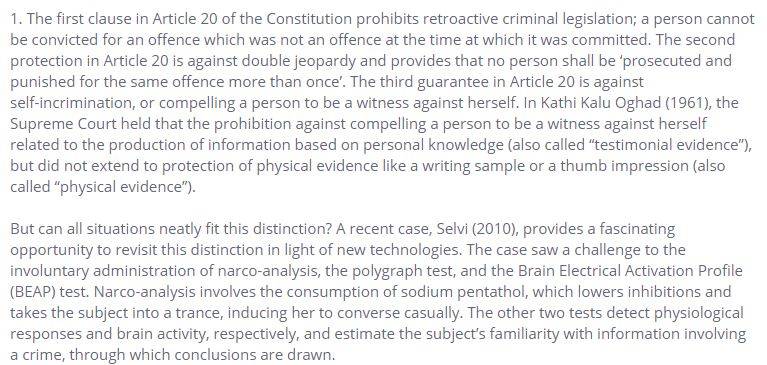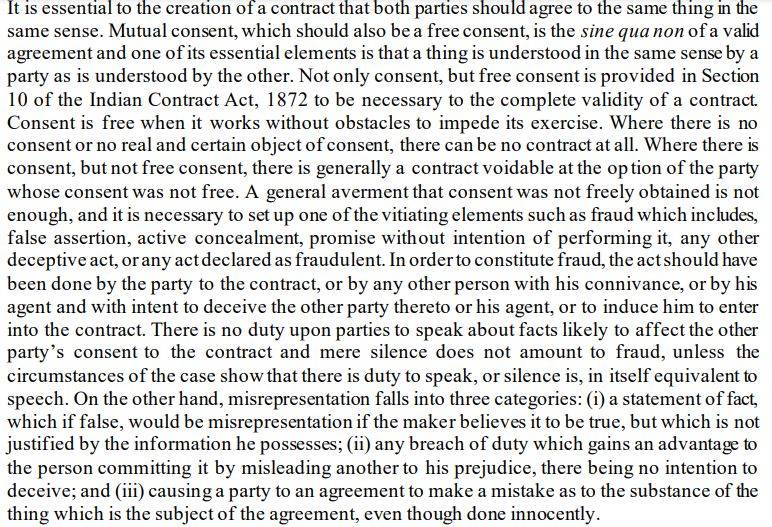
Legal Aptitude or Legal Reasoning is a section in law entrance exams that holds maximum weightage and demands candidates to possess good knowledge of fundamentals. Through this section, the exam conducting authorities test the legal awareness, analytical skills and problem-solving ability of candidates.
Preparation for Legal Reasoning and Legal Aptitude sections of the law entrance exams is no cakewalk. The Legal Reasoning section of CLAT is considered the toughest as it includes passage-based questions in which candidates have to identify the facts and principles themselves. In order to ace Legal Reasoning and Aptitude, candidates should have a systematic approach and a dedicated time schedule of at least six months. Read on to know what Legal Aptitude and Reasoning is all about, what topics are included in the section, how to prepare for the subject and a lot more.
- Law Entrance Exams with Legal Aptitude Section
- What is Legal Aptitude?
- What is Legal Knowledge?
- How to Prepare for Legal Aptitude & Reasoning?
- Legal Aptitude & Reasoning Syllabus for Law Entrance Exams
- Best Legal Reasoning & Aptitude Books
- Weightage of Legal Aptitude/Reasoning in Top Law Entrance Exams
- Legal Reasoning Sample Questions for CLAT 2025
- Legal Reasoning Sample Questions for AILET 2025
- Legal Reasoning Sample Questions for Other Exams
- Important FAQs on Legal Aptitude & Reasoning
Law Entrance Exams with Legal Aptitude Section
Before appearing for any law entrance exam, one must check if the question papers carry Legal Awareness, Aptitude and Reasoning section. The exam authorities gauge the legal acumen of candidates with this section. Some of the law entrance exams in India where the Legal Reasoning and Awareness section is a must to qualify:
| Law Entrance Exams in India | Subjects | Legal Reasoning Weightage in paper |
|---|---|---|
| CLAT | English Language, Current Affairs including General Knowledge, Legal Reasoning, Logical Reasoning, Quantitative Techniques | 35-39 marks for Legal Reasoning section |
| PU LLB Entrance Exam | General Knowledge & Current Affairs, Legal Aptitude, Reasoning Ability and Knowledge of English | 40 marks for Legal Aptitude section |
| PU UGLAW | General Knowledge & Current Affairs, Aptitude for Law, Mental Ability, English Language | 20 marks for Aptitude for Law |
| TSLAWCET | General Knowledge and Mental Ability, Current Affairs, Aptitude for the Study of Law | 60 marks for Aptitude for the Study of Law |
| APLAWCET | General Knowledge and Mental Ability, Current Affairs, Aptitude for the Study of Law | 60 marks for Aptitude for the Study of Law |
| KLEE | General English, General Knowledge, Arithmetic and Mental Ability, Aptitude for Legal Studies | 210 marks for Aptitude for Legal Studies |
| ULSAT | Language Comprehension, Quantitative & Numerical Ability, Logical Reasoning, Legal General Knowledge, Legal Aptitude | 30 marks for Legal GK and 30 marks for Legal Aptitude |
| SLAT | Logical Reasoning, Legal Reasoning, Analytical Reasoning, Reading Comprehension, General Knowledge | 12 marks for Legal Reasoning |
| AIL LET | Mental Ability, General Knowledge & Current Affairs, Law Aptitude, General English | 50 marks for Law Aptitude section |
| AMU Law Entrance Exam | Proficiency in English, Current Affairs/ General Knowledge (with focus on legal issues), Reasoning and Aptitude | 40 marks for Legal GK and Current Affairs |
| MHCET Law | Legal Aptitude and Legal Reasoning, General Knowledge with Current Affairs, Logical and Analytical Reasoning, English, and Mathematical Aptitude | 40 marks for Legal Aptitude and Legal Reasoning |
| NEF Law Entrance Test (NLET) | English including Comprehension, General Knowledge & Current Affairs, Elementary Mathematics, Legal Aptitude/ Awareness, Logical Reasoning | 40 marks for Legal Aptitude and Legal Reasoning |
| ILSAT | English, Logical Reasoning, GK & Current Affairs, Analytical Reasoning, Legal Reasoning | 25 marks for Legal Reasoning |
| GLAT | General Knowledge & Current Affairs, English, Reasoning, Legal Aptitude & Legal Awareness | 30 marks for Legal Aptitude & Legal Awareness |
What is Legal Aptitude?
Legal Aptitude is a section in law entrance exams that tests both Legal Reasoning, as well as Legal Knowledge of candidates. The subject is aimed to test the aptitude of aspirants in the legal domain, about how they analyse, interpret and resolve various case laws. The questions asked in Legal Aptitude section are based on landmark cases and judgements where legal theory and practice is the key. Those who have the legal acumen are able to score well in the subject with sufficient preparation.
Also read:
- CLAT 2025 Maths Questions - Preparation for Quantitative Techniques Section
- CLAT 2025 English Questions - Preparation for English Language Section
- CLAT 2025 GK Questions - Preparation for Current Affairs including GK Section
- CLAT 2025 Logical Reasoning Questions - Preparation for Analytical Reasoning Section
- CLAT 2025 Legal Aptitude Questions - Preparation for Legal Reasoning Section
- Legal Maxims Law Aspirants Must Know
What is Legal Knowledge?
Legal Knowledge consists of questions that are based on legal facts and current legal affairs. The section evaluates the candidates on their knowledge of legal facts.
Example of a Legal Fact or Legal Knowledge question along with answer:
Q. Which of the following positions is not provided for in the Constitution of India?
(a) Attorney General for India
(b) Solicitor General of India
(c) Advocate General of the State
(d) Chairperson of the Union Public Service Commission
Correct answer: B
What is Legal Reasoning?
Legal Reasoning is an important component of Legal Aptitude. It is a method of applying laws to facts in order to answer legal questions. Lawyers in a court of law use legal reasoning to argue for the interpretation that they find most convincing or that is most favorable to their client. Legal Reasoning has five major components:
- Issue: What is the issue that one is trying to resolve? What is being debated?
- Facts: What facts are presented in the issue?
- Principle: What legal rules can be applied to the given facts?
- Analysis: Apply the principle(s) to the facts
- Conclusion: What is the conclusion after applying the legal rules to facts?
Also Read:
| How to prepare for CLAT Legal Reasoning? | How to attempt CLAT Legal Reasoning questions? |
Let us understand the above components of Legal Reasoning through an example:
Observe the following principle:
How to Prepare for Legal Aptitude & Reasoning?
In order to ace the Legal Aptitude/Reasoning section, candidates should divide their preparation into two parts:
- Skills: In the first part, candidates should focus on enhancing their analytical, reading and comprehension skills. Candidates should be able to read and comprehend the facts quickly and thereafter, apply the legal principle to those facts and draw a conclusion out of it.
- Awareness: The second part of Legal Reasoning preparation requires candidates to stay updated with all the legal news and especially make a note of the important judgements made by the courts of law in the last one year. Staying updated with the latest legal news is important as many questions in the law entrance exams are based on news sources.
Also Read:
Legal Aptitude & Reasoning Syllabus for Law Entrance Exams
Check out the important topics on which Legal Reasoning questions are based in different law exams:
- Legal GK and Awareness
- Current Affairs
- Important Supreme Court Judgments
- Important Acts and Amendments of the Legislature
- Legal Maxims
- Indian Constitution
- Law of Torts
- Vicarious Liability
- Strict Liability
- Law of Crimes
- Law of Contracts
- International Law
- Intellectual Property Rights
- Hindu Marriage Act
- Constitutional Law
Best Legal Reasoning & Aptitude Books
Check out some of the best books for Legal Reasoning preparation below:
- Legal Awareness and Legal Reasoning by Pearson Publications
- Legal Aptitude and Legal Reasoning by AP Bhardwaj
- Objective Legal Aptitude by RS Aggarwal
- Analytical Reasoning by MK Pandey
Apart from these books, candidates should focus on reading:
- Newspapers
- Articles on legal matters in magazines
Also Read:
Weightage of Legal Aptitude/Reasoning in Top Law Entrance Exams
Check out the weightage of Legal Reasoning section in some of the law entrance exams below:
| Law Entrance Exams |
Names of Legal Section |
No. of Questions |
Marks |
|---|---|---|---|
| CLAT |
Legal Reasoning |
35-39 |
35-39 |
| AILET |
Legal Aptitude |
35 |
35 |
| SLAT |
Legal Reasoning |
18 |
18 |
| MH CET Law |
Legal Aptitude and Legal Reasoning |
40 |
40 |
Legal Reasoning Sample Questions for CLAT 2025
Legal Reasoning Sample Questions for AILET 2025
Legal Reasoning Sample Questions for Other Exams
Important FAQs on Legal Aptitude & Reasoning
Legal Aptitude & Reasoning Exam
Student Forum
Popular Courses After 12th
Exams accepted
CA FoundationExams accepted
ICSI ExamExams accepted
BHU UET | GLAET | GD Goenka TestBachelor of Business Administration & Bachelor of Law
Exams accepted
CLAT | LSAT India | AIBEExams accepted
IPMAT | NMIMS - NPAT | SET
Exams accepted
BHU UET | KUK Entrance Exam | JMI Entrance ExamBachelor of Design in Animation (BDes)
Exams accepted
UCEED | NIFT Entrance Exam | NID Entrance ExamBA LLB (Bachelor of Arts + Bachelor of Laws)
Exams accepted
CLAT | AILET | LSAT IndiaBachelor of Journalism & Mass Communication (BJMC)
Exams accepted
LUACMAT | SRMHCAT | GD Goenka Test









